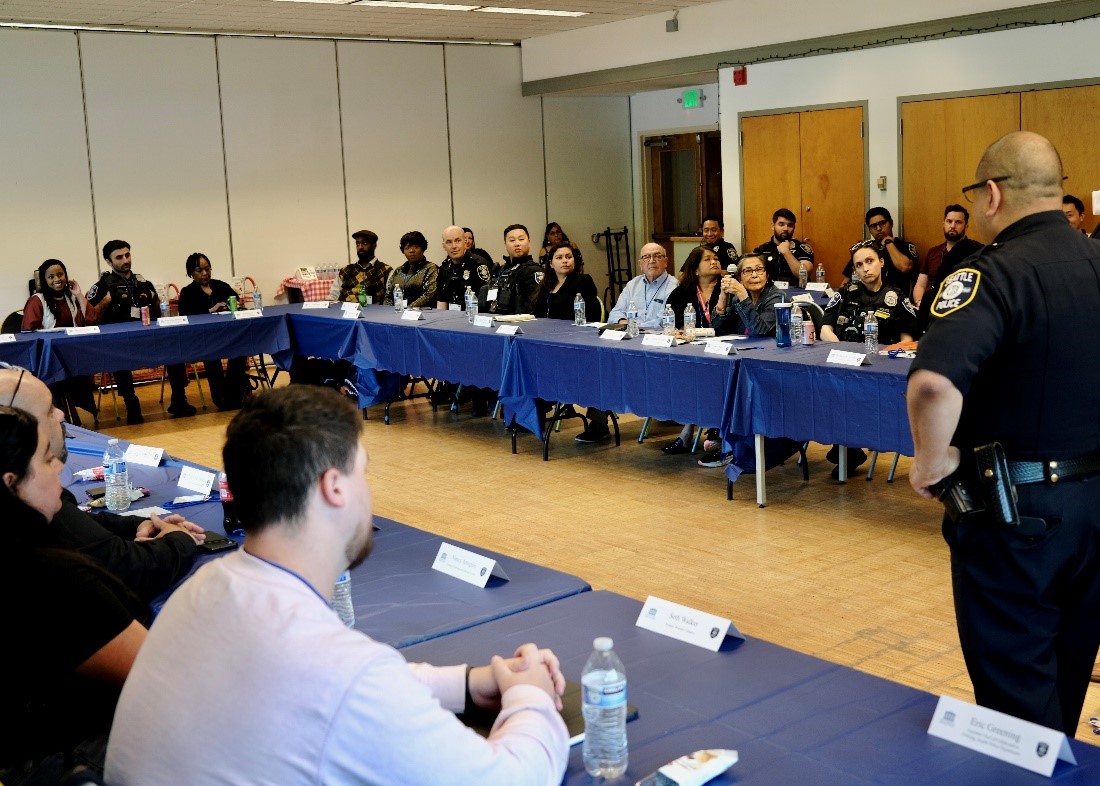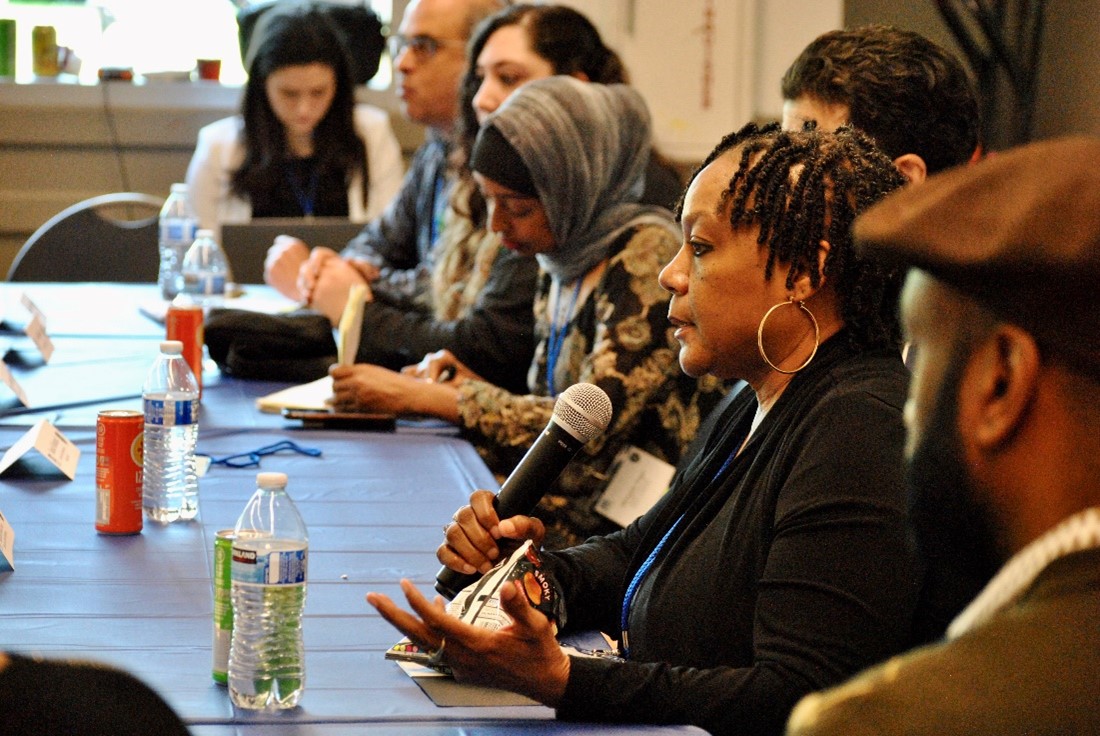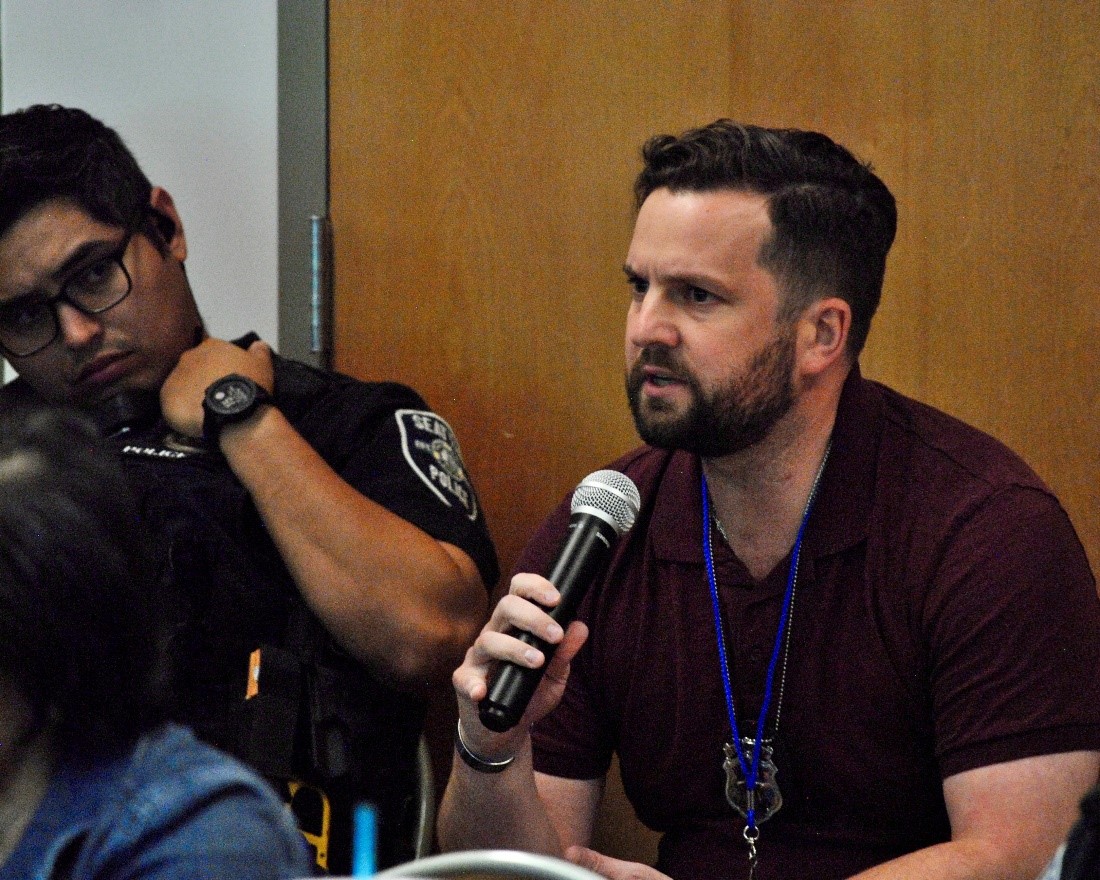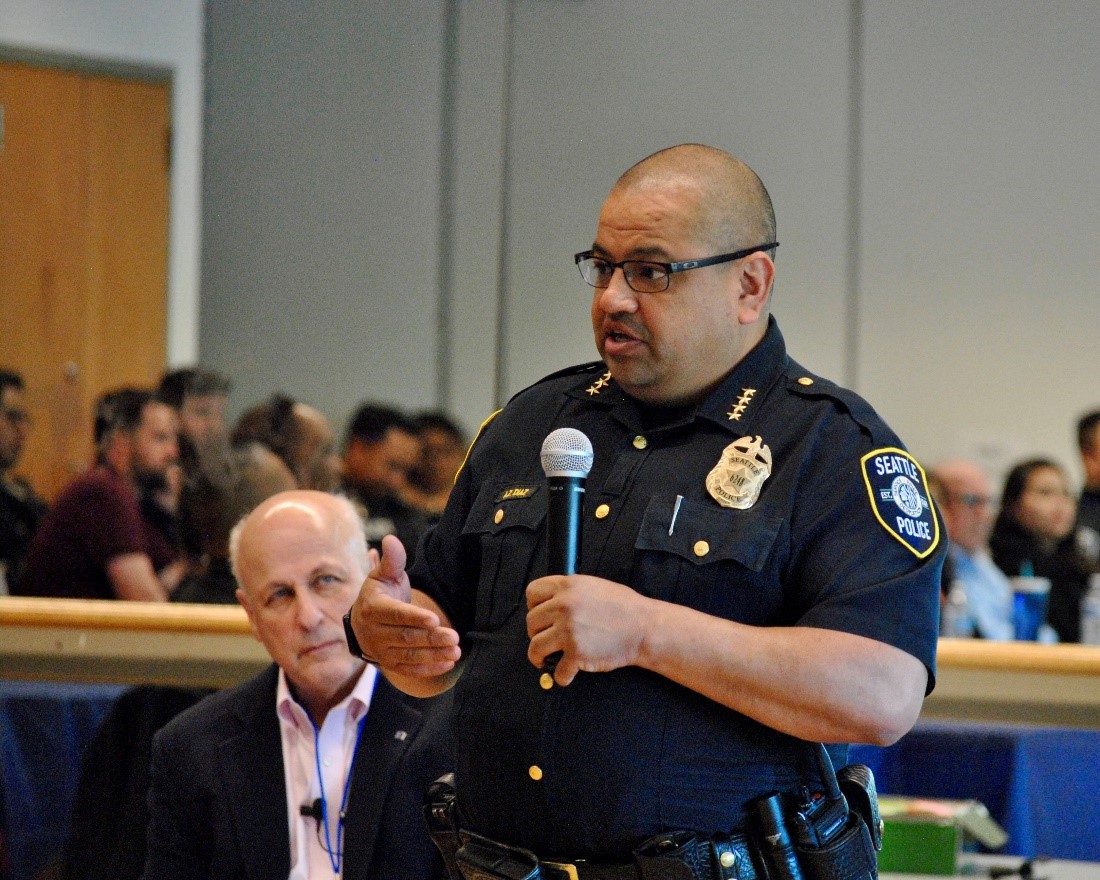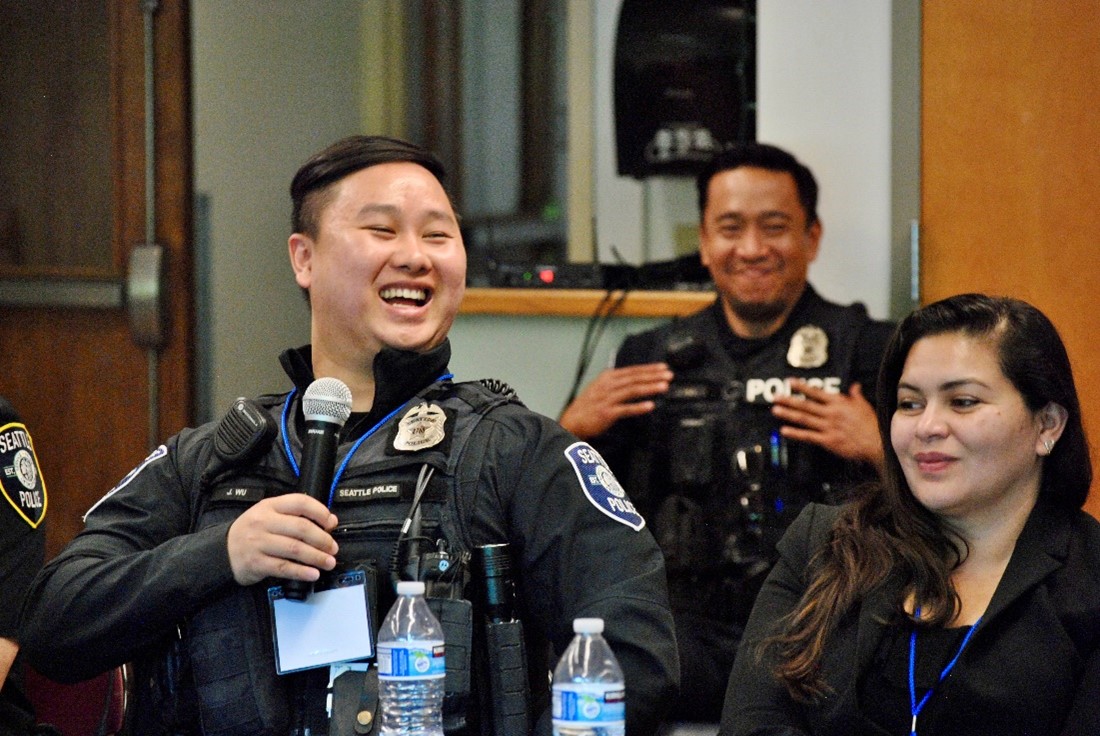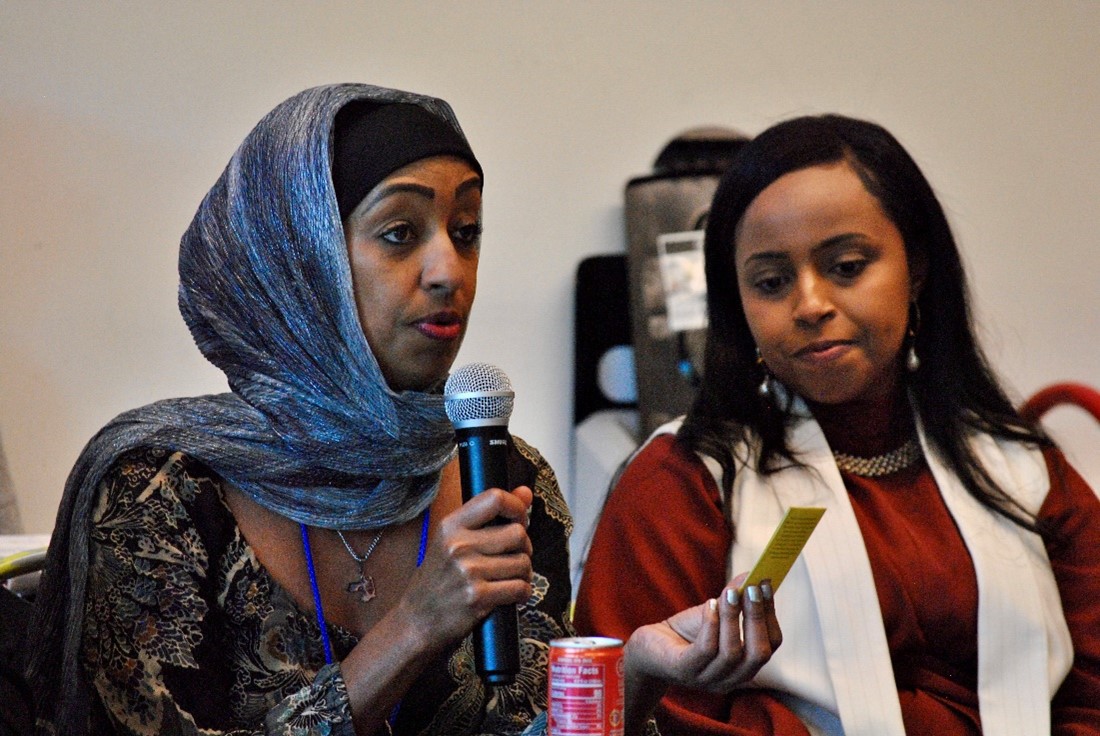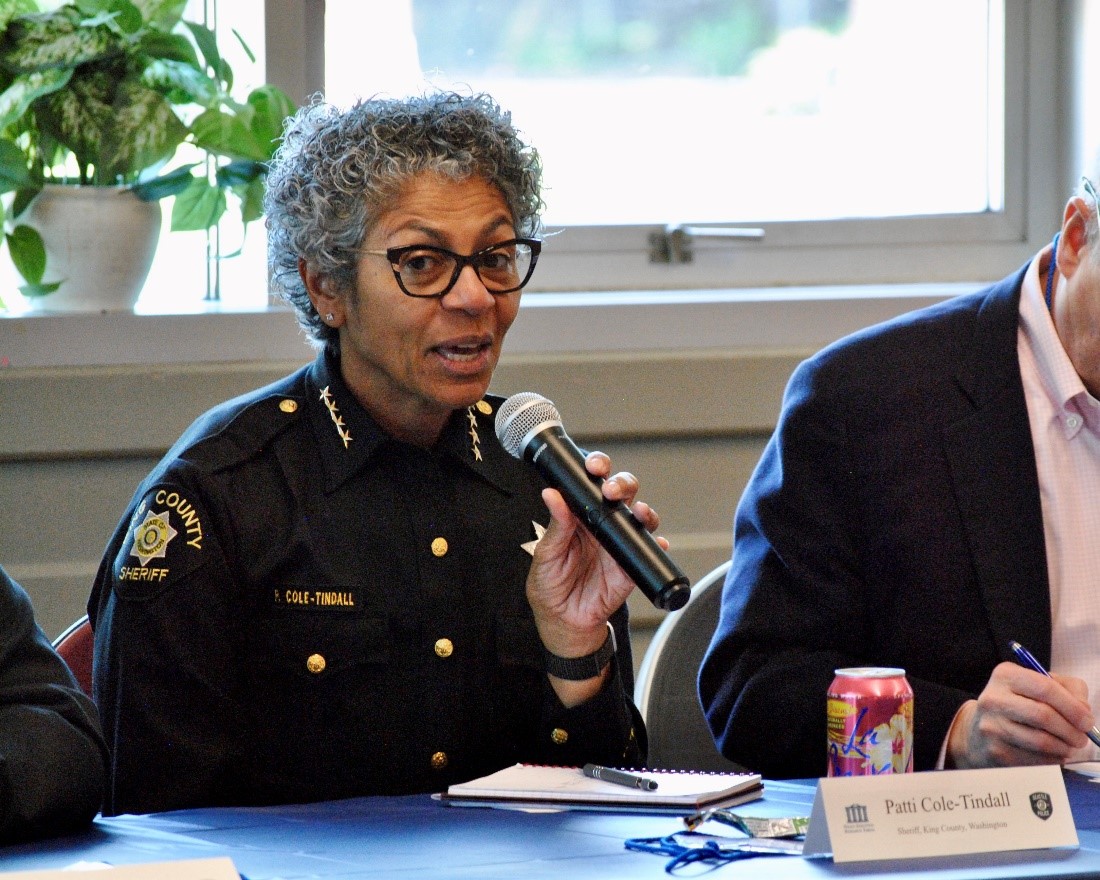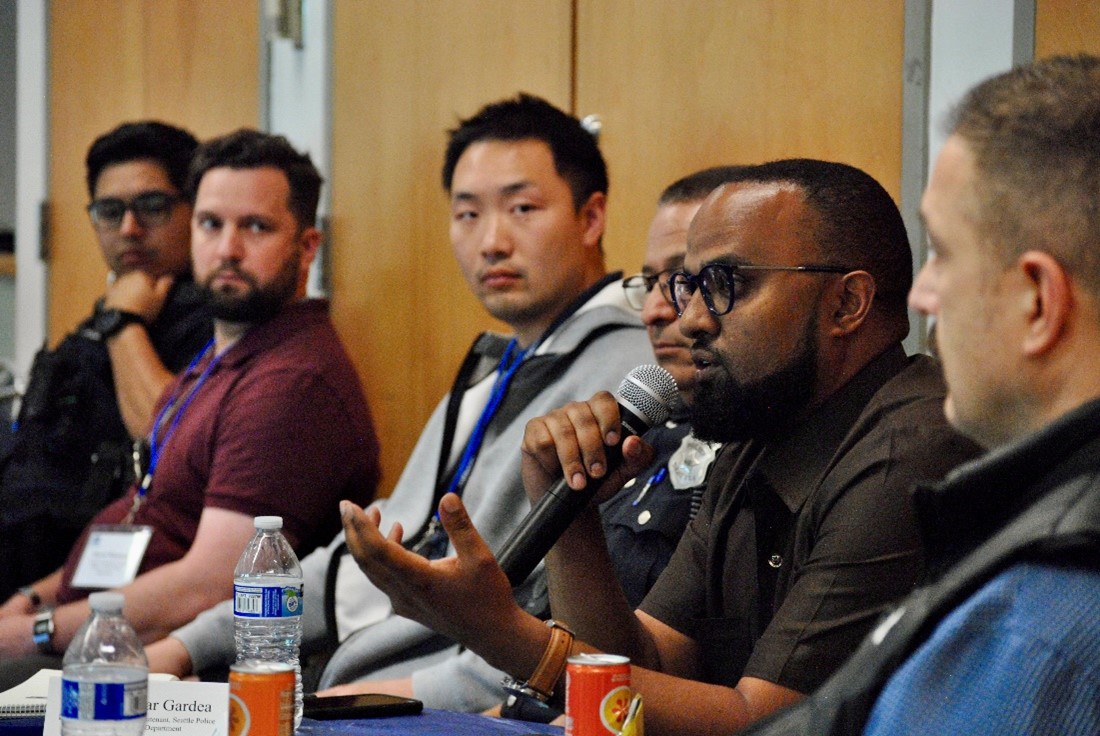|
June 10, 2023 A meeting about policing in Seattle’s immigrant and refugee communities
PERF members, Last week several PERF staff members and I traveled to Seattle for the first of several regional meetings PERF is organizing to discuss police interactions with immigrant and refugee communities. This meeting brought together representatives from local law enforcement agencies, including the Seattle Police Department, and immigration and refugee organizations. The goal was to hear each other’s perspectives and ideas for improving the relationship between these communities and local law enforcement.
Seattle Chief Adrian Diaz addresses meeting attendees Seattle Chief Adrian Diaz, a member of PERF’s board of directors, laid out some of the issues. “As we look into the future of policing, immigration and refugee issues are at the forefront,” Chief Diaz said. “How can police departments work better with communities? How do we deal with challenges like Title 42? How do we deal with issues around working with Immigration and Customs Enforcement? How might fear translate into not reporting crime? How might a decrease in reporting crime lead to an increase in victimization?”
Felicia Cross, Community Engagement Director of the Seattle Community Police Commission Several attendees brought up the need to educate community members about Seattle’s “sanctuary city” policy. “When I was brand new in 2016 and working in this neighborhood at night, people didn’t believe me when I said that we don’t cooperate [with federal immigration enforcement],” a Seattle detective said. “I have not really seen that improve. Now in my role as a detective, it’s hard to get witnesses to come forward, even for things like sexual assault and child rape.” Many are afraid that they may be turned over to immigration officials if they interact with police, even as a victim or witness. Police departments have a responsibility to protect all members of their community, regardless of whether they are in the country legally. An unreported domestic violence incident could turn into a homicide, so police should encourage crime reporting and work to solve all crimes, no matter the immigration status of the community member. A solved domestic violence case may prevent a murder.
David Warnock, Detective and Jewish Community Liaison Officer But advocates said it may be difficult for immigrants to see Seattle as a sanctuary city when federal officers continue to take enforcement action there. “Though we are a sanctuary city, in the late 2010s ICE decided to do raids in and around Seattle,” one representative from an immigrant support organization responded. “I know the difference between the sheriff’s office, the police department, and whoever else. And we have said we’re a sanctuary city for a long time. But when people saw raids in a sanctuary city, it made them feel less safe about approaching someone in uniform.” Stories like this are a challenge for local police. People may not differentiate between local and federal law enforcement, so chiefs need to educate the public about the differences and build trust in their individual agencies.
Seattle Chief Adrian Diaz Another key issue we discussed was hate crimes. Some attendees spoke about reasons that hate crimes may be underreported. “I previously led an LGBTQ nonprofit, and there were two types of incidents people didn’t want to report,” one attendee said. “One type was incidents where the person thought it would take more time and energy to report the incident than any justice they might get out of reporting. And there are incidents where people wonder, ‘If it’s just an insult that hurt your feelings, is it really a crime?’ They’re not thinking about the fact that they could be building a case against somebody, even if it’s not their case, to establish a pattern of fact that could get somebody some justice in the future. Often they’re thinking, ‘It was an intense incident and may have harmed me psychologically, but I walked away from it.’ And people do the math about the trade-offs of reporting it.”
Jing Wu, Chinatown Community Liaison Officer Chief Diaz emphasized the need for more reporting: “We treat every bias crime with such a high level of importance,” he said. “I get an alert for every incident like that, as do the deputy chief and assistant chiefs. If somebody says a certain word, we’re going to investigate it as a bias incident. But if it doesn’t get reported, we’re not going to be able to identify themes or connect cases.”
Mergitu Argo, Seattle Community Police Commission I am grateful to the Seattle Police Department and Chief Adrian Diaz for hosting this meeting, and to all attendees for their thoughtful ideas about how to improve police relationships with immigrant and refugee communities. I also want to thank the Carnegie Corporation, particularly Managing Director Geri Mannion and Program Officer Andrew Geraghty, for its continued support of PERF’s work on immigration and refugee issues. In recent years, PERF has published Carnegie-supported reports on community-based identification cards, building trust with immigrant communities in smaller cities and towns, community policing in immigrant neighborhoods, and refugee outreach and engagement programs. Our current immigration project will culminate in a report we plan to issue later this year.
King County Sheriff Patti Cole-Tindall I want to close with some powerful remarks at last week’s meeting from Habtamu Abdi, the Seattle PD’s outreach liaison to the East African community: “I have the perspective of somebody who was born and raised in Ethiopia and grew up in a dictatorial regime where the police officer is the court, the lawyer, and the judge. The police officer is everything. Back home I saw brutal police treatment firsthand. So I never thought I’d be working with the police. I came to Seattle, got my first job with the City of Seattle, and my judgement about police was still there. “I was volunteering with the local Ethiopian community, and a very unfortunate domestic violence incident happened and the police were called. We noticed the family was struggling with basic stuff – the kids were looking for snacks and juice and fighting over cookies. The next day, we went back to the same family, and the officers brought food, cookies, juice, and everything for the kids. “That incident changed my whole perspective. Down the road, I started working for the mayor’s office, and then this position [at the Seattle Police Department] came up eight years ago. Even though we started arriving here in the early ‘90s, the department was having a hard time recruiting anybody from the East African community. So the department first hired a civilian person to work with the community, and thought maybe down the road they could hire officers from this community. And I took that position because of those officers’ actions, which changed my whole perspective.”
Habtamu Abdi, Seattle PD outreach liaison to the East African community Habtamu’s comments were a powerful reminder that an individual officer can make a difference and change someone’s perspective. Have a wonderful weekend. Best, Chuck |

